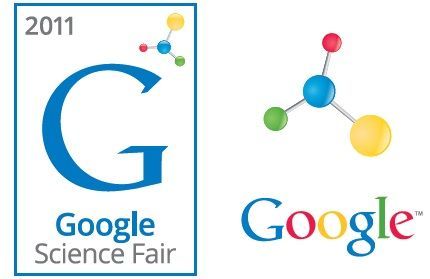
In his State of the Union speech in January, US President Barack Obama proclaimed that “we need to teach our kids that it’s not just the winner of the Super Bowl who deserves to be celebrated, but the winner of the science fair.” A noble (and correct) assessment, to be sure, but one mired in numerous educational and cultural obstacles. For one thing, science fairs themselves are at a perilous crossroads. A New York Times report issued in February stated that not only is participation in science fairs among high school kids falling, but that the kind of creativity and independent exploration that these competitions necessitate is impossible under current rigid test-driven educational guidelines for teaching mathematics and science. Indeed, an interesting recent Newsweek article on “The Creativity Crisis” conveyed research studies showing that for the first time, American creativity is declining. How appropriate, then, that this April (national math education month) brings the culmination of the Google World Science Fair, the first ever competition of its kind transpiring online and open to lab rats from all over the globe. ScriptPhD.com discusses why this could be a game-changer for the next generation of young scientists, under the “continue reading” cut.
One of the most chilling chapters in Thomas Friedman’s brilliant 2005 book “The World is Flat” discusses the ramifications of the globalization of science, and how quickly America is getting left behind. In addition to global “flatteners” (connectors) such as the internet, outsourcing, and yes, even access to free information via Google, Friedman details how hard third-world nations such as India and China work to attain supreme educations in math and science. On the one hand, they are producing more raw talent than ever, which often (due to lack of job opportunities and world-class facilities) finds its way into American (and Western) laboratories and corporations. On the other hand, it leaves American students and scientists ill-prepared to compete in a globalized economy based on information rather than raw production. (See Tom’s talk about global flattening at MIT here.) China will surpass the United States in patent filings by scientists by 2020. They are set to overtake the US in published research output even faster – in 2 years! Disturbingly, US teens ranked 25th out of 34 countries in math and science in the most recent world rankings, prompting President Obama to direct $250 million dollars towards math and science education. How that education is conveyed in classrooms is a subject of quite ardent debate.
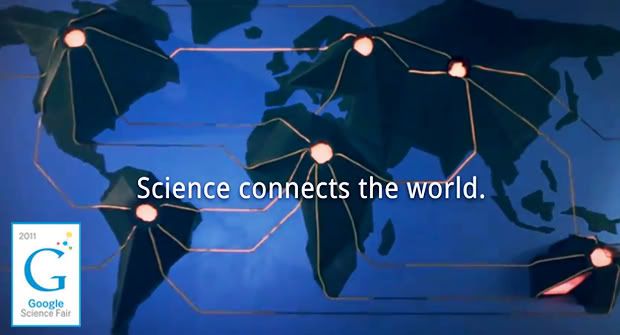
Clearly, science education, in its current incarnation, is not working successfully. Unorthodox curricula have been proposed by numerous academic institutions, and even implemented with success in some countries. Furthermore, the idea of iconoclasts and self-taught geniuses, left alone to ferment their creativity, is not new. Albert Einstein famously clashed with authorities in primary school (which he barely finished), noting that “the spirit of creativity and learning were lost in strict rote learning.” In 2009, self-taught college dropout Erik Anderson proposed a major new theory on the structure of spiral galaxies and published it in one of the world’s most prestigious journals. (See ScriptPhD.com’s excellent post on whether creativity can really be measured in the lab.) Enter the Google World Science Fair. Capitalizing on the web and social media-driven knowledge of the current generation, they aim to not only expand on traditional well-known science competitions like Intel and Siemens, but to catapult them into the modern Internet era. Concomitantly, and even more importantly, as the fair’s organizers relayed over the weekend to the New York Times, they wish to improve science and math education in America incorporating a brand that many kids are already familiar with and use with ease. Why not infuse the excitement of a Google search into the staid, antiquated methodologies afflicting much of math and science curricula today? The impacts of science and independent experimentation are wide-reaching and powerful. During a gathering of scientists, students and judges on the day of the science fair announcement at Google headquarters, African self-taught scientist William Kamkwamba shared how from a library book, he was able to build a wind mill that powered his large family’s house, brought water to his impoverished village, but then taught other villagers to build wind mills, and by proxy, improved schools and living conditions. Who knows how many of this year’s global entrants will make such sizable contributions to their communities, or even, as they’re encouraged to do, solve global-scale afflictions?
Beyond the originality factor, he Google competition is important in several ways. It’s virtual and literally open to anyone in the world so long as they are a student between the ages of 13-18, thereby negating the most obvious roadblock to participation in many science competitions: location and affordability. (Though studies argue that internet access is still an overwhelming factor in economic and social equality, which is a not insignificant hurdle for aspiring third world participants.) Secondly, the competition is being judged on a passion for science and ideas, especially those relevant to the world today. In an age when we’re trying to ameliorate diseases, epidemics, the effects of global warming and violently changing weather patterns, urban sprawl and overpopulation, along with an ever-frustrating lack of access to water, food and sanitation by the poor, a few extra ideas and approaches can’t hurt. After all, a 15-year-old Louis Braille invented a system of reading for the blind, 18-year-old Alexander Graham Bell sketched rough ideas for what would turn into the telephone, 14-year-old Philo T. Farnsworth invented the television, and the modern microscope that many entrants will likely use in their experiments was invented by a 16-year-old Anton van Leeuwenhoek! (See more here.)
In the same spirit of hip novelty and digital cleverness that they’ve infused into the age-old science fair, Google hired the team from Los Angeles-based Synn Labs, the same team behind the viral OK Go music video, to create a thirty-second Rube Goldberg-themed video promoting the science fair. It is, perhaps, the highlight of the competition itself! Take a look:
The submission deadline for the 2011 online global science fair is today, April 4, 2011. All information about submission, judging, prizes, and blogs about entries can be found on the Google Global Science Fair homepage. The site also offers resources for teachers and educators looking to gain ways to bring the essence of Google’s science fair into their classrooms. You can also track all projects, as well as interact and exchange ideas with other science buffs, on their Facebook fan page and Twitter page.
ScriptPhD.com encourages all of our readers, clients, and fans who either submitted entries by the deadline, had their kids enter, or know someone who entered the competition to come back and tell us about the experience on our Facebook page. We’d love to hear about it! We wholeheartedly support programs that promote science and innovation, especially applicable to mitigating global social and technological obstacles. Our consulting company mantra is that great creative enterprises are fueled by great ideas. So, too, are science and technology. As such, we applaud Google for reinventing (and virtualizing) science outreach to encourage ideas and transform an entire generation of scientists, regardless of location, education or perceived ability. And if you’re bummed that you missed out on this year’s competition, think of it this way: you have plenty of time to prepare for 2012!
This post was sponsored by Unruly Media.
~*ScriptPhD*~
*****************
ScriptPhD.com covers science and technology in entertainment, media and advertising. Hire our consulting company for creative content development.
Subscribe to free email notifications of new posts on our home page.
]]>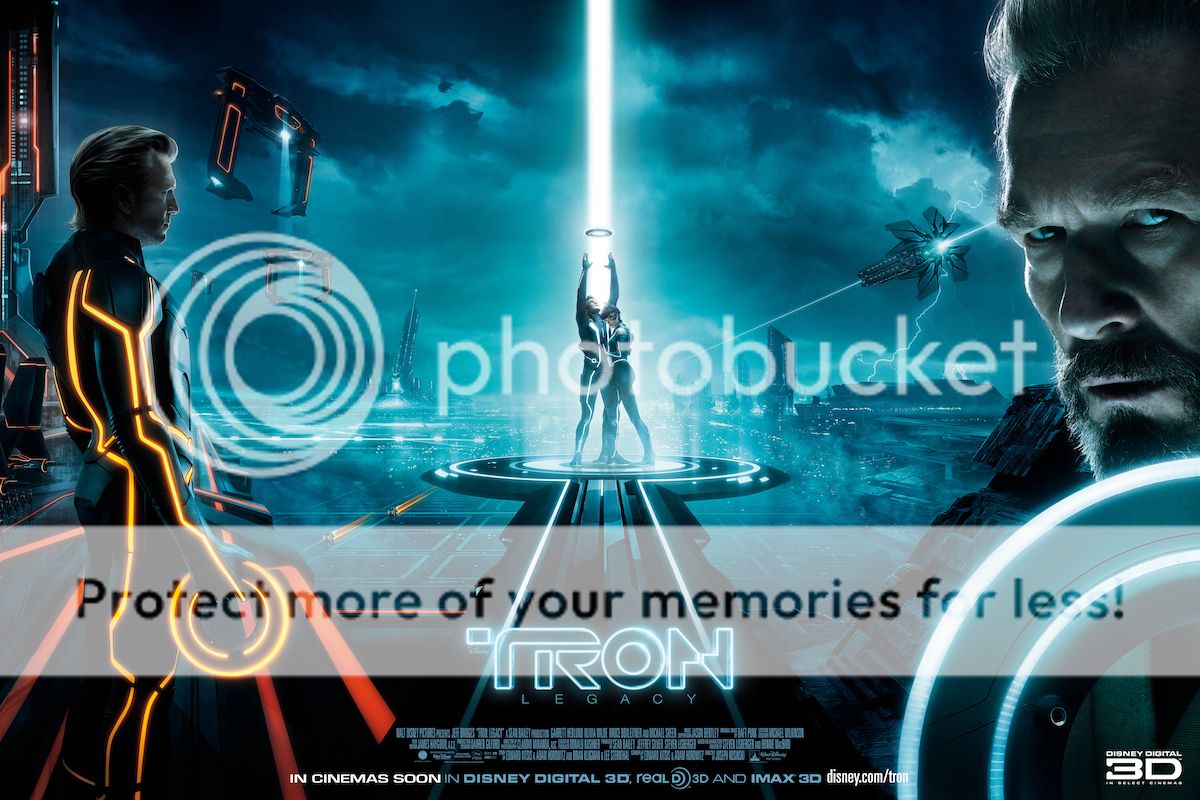
It has been 28 years since the release of the enormously groundbreaking science-fiction adventure Tron, the story of Kevin Flynn, a video game programmer that gets sucked into the virtual grid of the very game he created. As Flynn’s son, now cyber-reunited with his father, points out, decades of technology have bestowed us with cell phones, wi-fi, the internet, and even virtual dating. But one immutable fact stands the test of time—great sci-fi is great sci-fi. Without upstaging the original, TRON: Legacy manages a sleek, stylish, clever sequel utterly germane to the times we live in. ScriptPhD.com got treated to a preview screening in Hollywood this week. Our full review under the “continue reading” cut.
REVIEW: TRON: Legacy
ScriptPhD Grade: B+
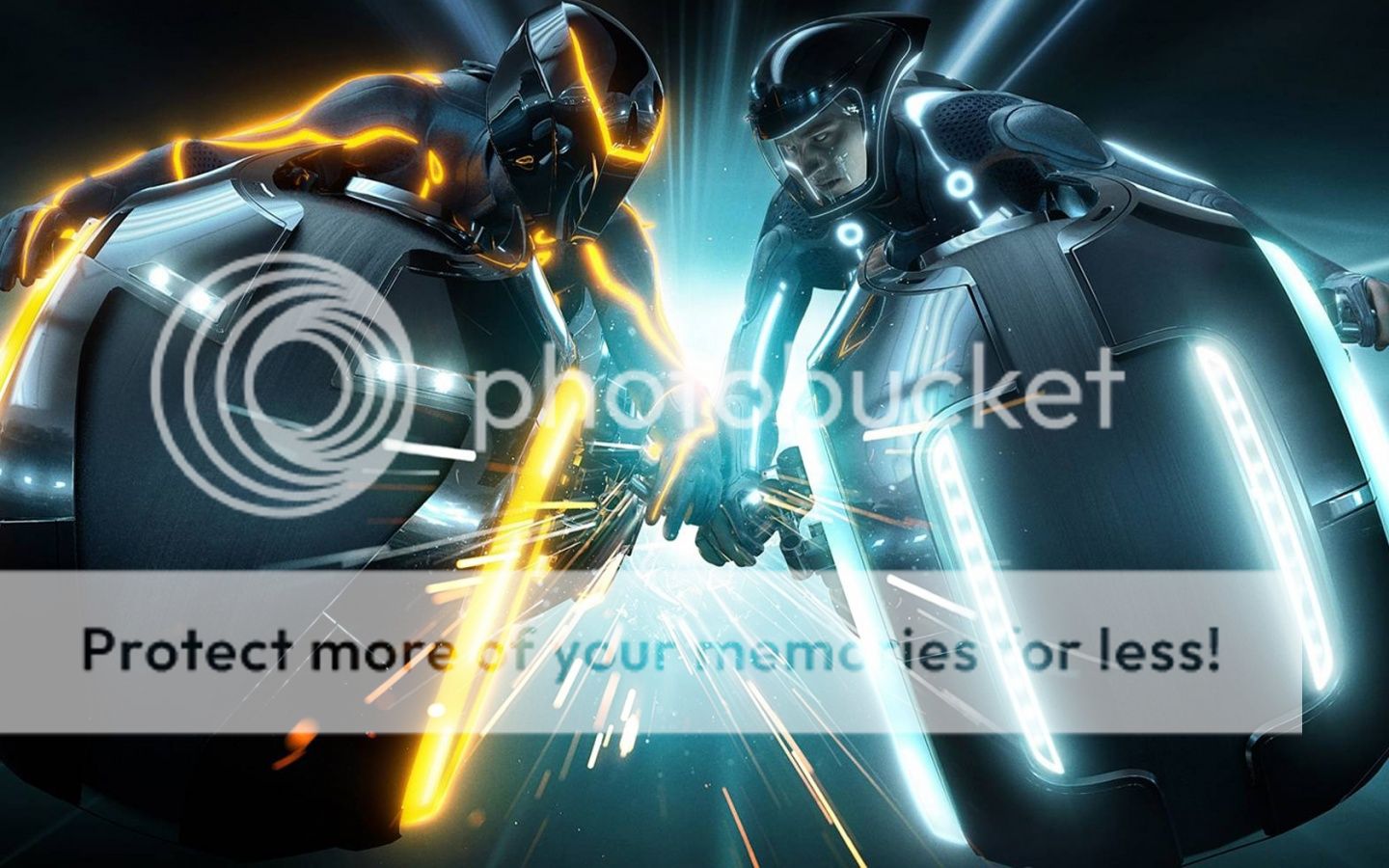
TRON: Legacy briskly picks up right where Tron left off. Cleverly superimposed “flashback” scenes (and a very digitally altered Jeff Bridges) are provided for the benefit of fans who missed the original. Genius video game programmer Kevin Flynn (Bridges) has found a way to transport himself into the virtual grid of his game—a place where minutes are hours of time on Earth. He tells his son that he’s discovered a miracle, and promises to show him the Tron world, only to forever disappear. Flash forward to a 27-year-old Sam Flynn (Garrett Hedlund): reckless, bored, apathetic, but a regular chip off the old techie block, a geeky rebel without a cause. Encom, the developer of Tron, has now become a software hegemony—Atari meets Apple—and has strayed far from Kevin’s principle of freeware open to all. After sabotaging the company’s grand operating software launch, Sam is visited by his father’s partner Alan Bradley (Bruce Boxleitner), who has never given up on Kevin. Alan tells Sam that he’s received a mysterious page from Kevin, and begs him to go to the old arcade that he frequented as a kid. There, Sam discovers his dad’s secret underground office and the portal that transports him to the digital grid of Tron.
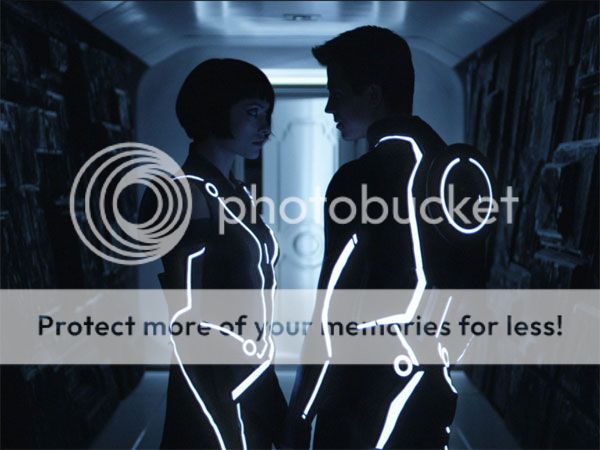
The world that Sam finally visits is far from the utopia his father envisioned. He is first grouped with other with other deficient “programs” for inspection, outfitted with a sleek gamer outfit and disc (half memory-storage device, half weapon), and thrust into a world of brutal gladiator games where the only goal is survival and the rules change with each treacherous level. No longer is this gaming world one of skill and possibility. It is dangerous, seedy, and lachrymose, as evidenced by the monochromatic whites, greys, and blacks that are virtually the only colors displayed throughout the film. And Clu is no longer the brave warrior digital replica of his father; he is a brutal overlord who committed virtual genocide, hacked the program, and has ultimate plans to teleport to Earth to be with humans. Sam is rescued from the grid by Quorra (Olivia Wilde), an advanced, evolved program not initially designed to go off the grid. She is the “miracle” that Kevin lauded—an isometric being, an entirely new life form, and the last surviving one. When reunited with Sam, Kevin recounts getting “trapped” in the grid after a violent overthrow by Tron and Clu. In addition to executing a genocide against the isos (forever closing the portal to the outside world), they stole Kevin’s original disc for their nefarious purposes. With the help of Quorra and Sam, Kevin has only 8 hours to overthrow Clu’s digital army until the portal closes again… forever.

TRON: Legacy largely has the feel of a 2-hour interactive video game, aided both by the color-coded costumes and a catchy, techno-pop soundtrack by Daft Punk. It’s also a cheeky, subtle commentary on the idea of technological dominance over humans, often explored in science fiction. Is it so unlikely, NASA having just discovered a new non-carbon-based life form, that an evolutionary miracle like Quorra could happen? Could a wily programmer or physicist find himself ensnared in a digital grid? Highly unlikely in the short term, but with digital quantum teleportation on the horizon and China in quick pursuit of the physical variety, it’s not inconceivable in the future. Furthermore, thinking robots are no longer an aspiration, as the age of thinking, self-developing robots has arrived. Even the internet, on which one would argue we are wholly dependent today, has been shown by physicists to abide by the same laws of physics as an integrated circuit! “Our worlds are more interconnected than you think,” Kevin Flynn reminds his son. Quorra, adorably naïve and inexperienced, voraciously devours human literature and longs more than anything to see the sun shine. There is a delicate beauty to humanity that an orderly grid of 0’s and 1’s can ultimately never replicate. We should lift our eyes away from our smartphones, Wiis, iPads, and laptops to notice that every once in a while.
To be sure, TRON: Legacy is not reinventing sci-fi, tech-geek gizmo gadgetry, or a complicated storyline beyond “good guys defeat bad guys.” (Story development was not, in fact, a principal strength of the original Tron, which was considered a breakthrough in cinematic special effects.) Nevertheless, sci-fi fans, geeks and gamers will be able to feast on astounding visual mastery, life-size video games played out before your eyes, and science fiction/fantasy existentialism staple questions (who are we? what is humanity? what are the limits of technology and what we create?). Most importantly, it’s a relevant portal to our current age of digital enslavement, literally redefining modern life before our eyes. Above all else, TRON: Legacy is two hours of darned good entertainment.
View the trailer:
TRON: Legacy goes into wide release on December 17, 2010 in US theaters.
~*ScriptPhD*~
*****************
ScriptPhD.com covers science and technology in entertainment, media and advertising. Hire our consulting company for creative content development.
Subscribe to free email notifications of new posts on our home page.
]]>
